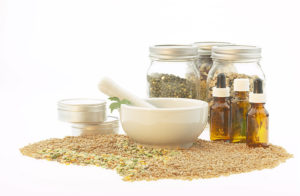 Cauliflower is a member of the cruciferous family of vegetables, often overshadowed by its green cousin broccoli. This is one vegetable that deserves a regular rotation in your diet, however, as it contains an impressive array of nutrients, including vitamins, minerals, antioxidants, and other phytochemicals.
Cauliflower is a member of the cruciferous family of vegetables, often overshadowed by its green cousin broccoli. This is one vegetable that deserves a regular rotation in your diet, however, as it contains an impressive array of nutrients, including vitamins, minerals, antioxidants, and other phytochemicals.
Adding to cauliflower’s appeal is its extreme versatility. You can eat it raw, add it to salads, or use it in your cooking. Cauliflower can even be seasoned and mashed for a healthier version of “mashed potatoes.”
8 Top Health Benefits of Cauliflower
Because of its beneficial effects on numerous aspects of health, cauliflower can easily be described as a superfood. Ten of its most impressive benefits follow:
1. Fight Cancer
Cauliflower contains sulforaphane, a sulfur compound that has also been shown to kill cancer stem cells, thereby slowing tumor growth. Some researchers believe eliminating cancer stem cells may be key to controlling cancer.
For instance, research has shown that combining cauliflower withcurcumin (the active compound in the spice turmeric) may help prevent and treat prostate cancer.1
A study published in Carcinogenesis also found sulforaphane may reduce the incidence and rate of chemically induced mammary tumors in animals.2 It also inhibits the growth of cultured human breast cancer cells, leading to cell death.
Other compounds in cauliflower also show anti-cancer effects. According to the National Cancer Institute:3
“Indoles and isothiocyanates have been found to inhibit the development of cancer in several organs in rats and mice, including the bladder, breast, colon, liver, lung, and stomach.”
2. Boost Heart Health
Sulforaphane in cauliflower and other cruciferous vegetables has been found to significantly improve blood pressure and kidney function.4Scientists believe sulforaphane’s benefits are related to improved DNA methylation, which is crucial for normal cellular function and proper gene expression, especially in the easily damaged inner lining of the arteries known as the endothelium.
3. It’s Anti-Inflammatory
You need some level of inflammation in your body to stay healthy. However, it’s also possible, and increasingly common, for the inflammatory response to get out of hand.
If your immune system mistakenly triggers an inflammatory response when no threat is present, it can lead to significant inflammation-related damage to the body, a condition linked to cancer and other diseases, depending on which organs the inflammation is impacting.
Cauliflower contains a wealth of anti-inflammatory nutrients to help keep inflammation in check, including indole-3-carbinol or I3C, an anti-inflammatory compound that may operate at the genetic level to help prevent the inflammatory responses at its foundational level.5
4. It’s Rich in Vitamins and Minerals
Most Americans are seriously lacking in nutrients their body needs to function. Eating cauliflower regularly is a simple way to get these much-needed nutrients into your body. For instance, one serving of cauliflower contains 77 percent of the recommended daily value of vitamin C. It’s also a good source of vitamin K, protein, thiamin, riboflavin, niacin, magnesium, phosphorus, fiber, vitamin B6, folate, pantothenic acid, potassium, and manganese.
5. Boost Your Brain Health
Cauliflower is a good source of choline, a B vitamin known for its role in brain development. Choline intake during pregnancy “super-charged” the brain activity of animals in utero, indicating that it may boost cognitive function, and improve learning and memory. It may even diminish age-related memory decline and your brain’s vulnerability to toxins during childhood, as well as conferring protection later in life.6
6. Detoxification Support
Cauliflower helps your body’s ability to detoxify in multiple ways. It contains antioxidants that support Phase 1 detoxification along with sulfur-containing nutrients important for Phase 2 detox activities. The glucosinolates in cauliflower also activate detoxification enzymes.7
7. Digestive Benefits
Cauliflower is an important source of dietary fiber for digestive health. But that’s not all. According to the World’s Healthiest Foods:8
“Researchers have determined that the sulforaphane made from a glucosinolate in cauliflower (glucoraphanin) can help protect the lining of your stomach. Sulforaphane provides you with this health benefit by preventing bacterial overgrowth of Helicobacter pylori in your stomach or too much clinging by this bacterium to your stomach wall.”
8. Antioxidants and Phytonutrients Galore
Eating cauliflower is like winning the antioxidant and phytonutrient lottery. It’s packed with vitamin C, beta-carotene, kaempferol, quercetin, rutin, cinnamic acid, and much more. Antioxidants are nature’s way of providing your cells with adequate defense against attack by reactive oxygen species (ROS).
As long as you have these important micronutrients, your body will be able to resist aging caused by your everyday exposure to pollutants, chronic stress, and more. If you don’t have an adequate supply of antioxidants to help squelch free radicals, then you can be at risk of oxidative stress, which leads to accelerated tissue and organ damage.
